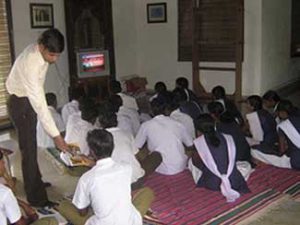India’s national parks face many struggles to maintain the delicate balance between the natural environment and human civilization. Human-animal conflict occurs as a result of human settlements that have encroached on animal territory, or a lack of sustainability and responsibility in protecting the environment.
At Tigris, we believe in working with the local community to drive sustainability initiatives that...
Sustainability and social responsibility is integral to our ethos at Tigris. We don’t just say it. We do it. And we mean it.
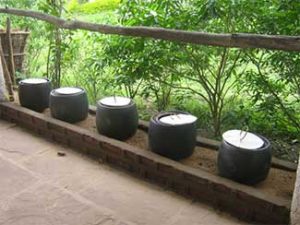
Central India’s greatest challenge is its temperature extremes. One of the biggest domestic challenges is keeping food hygienic and preventing it from getting spoiled, without using electricity. So we thought out of the box and came up with a practical solution to solve the issue.
Access to power and fuel is often a challenge in the forest and as a result, the villagers tend to use wood or coal which destroys the environment. The Tigris team decided to educate them and empower them with solar cookers, that simply run off the sun’s energy. These were such a success, that we’ve taken solar a step further, and are now digging strategically placed bore wells that will be powered by solar pumps.
In order to cook hygienically, supplies needed to be stored and kept fresh. Zeer Pots are indigenously built “refrigerators” made out of earthen pots. Two earthen pots fit into one another, and sand is filled into the gap in between. The sand is left damp by pouring a few glasses of water over it three times a day, and it keeps vegetables and fruit fresh for over a week.
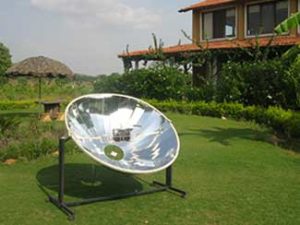
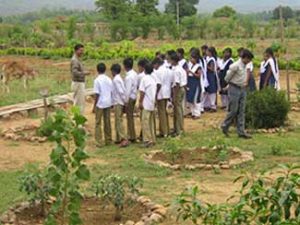
While the government deploys local people and resources to protect India’s national parks, we also believe in supporting our rangers proactively, to empower them and encourage them to protect our forests. In Bandhavgarh, Tigris has distributed supplies such as woolens, boots, water bottles, and mosquito nets as well as equipment such as motorcycles, cameras and binoculars, to help them do their job better.
One of the challenges of being on a jungle adventure is finding a designated spot to use the facilities in an environmentally friendly and hygienic manner. Tigris has donated a forest restroom at the Mukki Range in Kanha that is made out of recycled wood and rugs, so that it is in keeping with the environment.
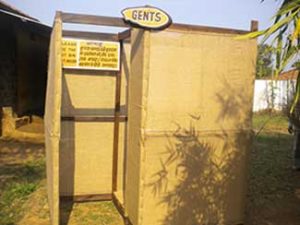
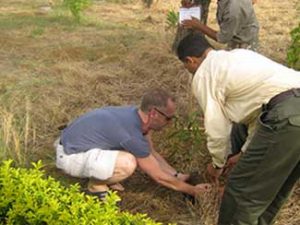
Every year, Tigris Safaris holds a replantation drive to seed trees in the forest just before the monsoon rains. Our staff works with the local community in different parts of the country, and our guests are invited to participate as well.
At Tigris we believe that it’s never too early to teach our children about the importance of protecting the environment. We take locals on safaris with our naturalists into the park, at least twice a month, and also take children on field trips to various resorts to teach them about sustainable and responsible tourism initiatives, and how these can become a source of income as well as a reason to protect the forest. In Kanha, we have adopted the school, and in addition to educating them in the regional language, we are also teaching them English, so that they have more opportunities to learn and grow.
We have also made a commitment to send one child to school for every new guest who books a safari tour with us.
